
Robert Emory Pattison was the 19th Governor of Pennsylvania from 1883 to 1887 and 1891 to 1895. Pattison was the only Democratic Governor of Pennsylvania between the Civil War and the start of the Great Depression.

The 1966 South Carolina gubernatorial election was held on November 8, 1966 to select the governor of the state of South Carolina, USA. It marked the first time since the gubernatorial election of 1938 that the Democratic candidate faced opposition from a Republican candidate. Governor Robert Evander McNair prevailed as the winner of the election and continued as the 108th governor of South Carolina, but Joseph O. Rogers, Jr. had a respectable showing for the first Republican candidate in 28 years.

The 2010 Pennsylvania gubernatorial election was held on November 2, 2010, to elect the Governor and Lieutenant Governor of Pennsylvania, concurrently with elections to the United States Senate in Pennsylvania and other states and elections to the United States House of Representatives and various state and local elections.

The Pennsylvania lieutenant gubernatorial election of 2010 was held on November 2, 2010. The winning candidates for Governor and Lieutenant Governor will serve a four-year term from 2011 to 2015. In Pennsylvania, the Lieutenant Governor is elected on the same ticket as the Governor, so the only campaign for this office was the primary election. As a result of Tom Corbett's election to the position of governor, Jim Cawley became the new Lieutenant Governor.
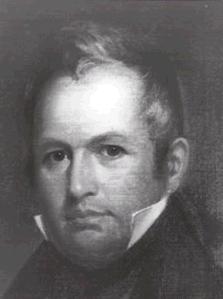
The Pennsylvania gubernatorial election of 1835 was between three candidates. Incumbent Governor George Wolf ran as an Independent Democrat. In the end Joseph Ritner won the election and became Pennsylvania's only Anti-Masonic governor.

The Pennsylvania gubernatorial election of 1823 occurred on November 4, 1823. Incumbent Federalist governor, Joseph Hiester, did not seek re-election. The Democratic candidate, John Andrew Shulze, defeated Federalist candidate Andrew Gregg.
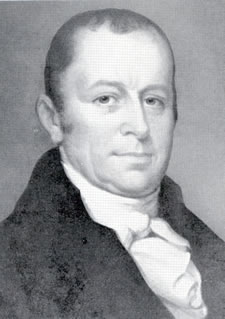
The Pennsylvania gubernatorial election of 1811 occurred on November 5, 1811. Incumbent Democratic-Republican governor Simon Snyder won re-election over Federalist candidate William Tilghman, the Chief Justice of the Pennsylvania Supreme Court, by a wide margin. Two of the major policy goals on which Snyder campaigned were increasing spending for infrastructural upgrades and authorizing the transfer of governmental operations from Lancaster to Harrisburg.

The Pennsylvania gubernatorial election of 1808 occurred on November 8, 1808. Incumbent governor Thomas McKean, a former Democratic Republican who had faced impeachment by members of his own party during the prior term, was not a candidate. Democratic-Republican candidate Simon Snyder, former Speaker of the Pennsylvania House of Representatives defeated Federalist candidate and former U.S. Senator James Ross to become Governor of Pennsylvania. Snyder, with the aid of a supportive press, campaigned as a "New School Democrat" and attempted to ally himself with James Madison. He painted the former McKean administration as elitist and advocated for popular democracy, governmental intervention in the economy, and infrastructural support for Western Pennsylvania counties.
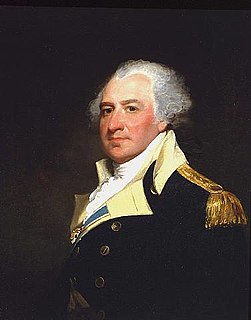
The Pennsylvania gubernatorial election of 1796 occurred on November 8, 1796. Incumbent Democratic-Republican governor Thomas Mifflin successfully sought re-election to a third term. For the second consecutive election, he was victorious over U.S. Representative Frederick Muhlenberg, the Federalist candidate, by a wide margin.

The Pennsylvania gubernatorial election of 1793 occurred on November 5, 1793. Incumbent Democratic-Republican governor Thomas Mifflin successfully sought re-election to another term, defeating Federalist candidate and U.S. Representative Frederick Muhlenberg.

The Pennsylvania gubernatorial election of 1844 occurred on November 5, 1844. Incumbent Democratic governor David R. Porter was not a candidate for re-election. Democratic candidate Francis R. Shunk defeated Whig candidate Joseph Markle to become Governor of Pennsylvania.

The Pennsylvania gubernatorial election of 1906 occurred on November 6, 1906. Incumbent Republican governor Samuel W. Pennypacker was not a candidate for re-election. Republican candidate Edwin Sydney Stuart defeated Democratic candidate Lewis Emery, Jr. to become Governor of Pennsylvania.

The Pennsylvania gubernatorial election of 1914 occurred on November 3, 1914. Incumbent Republican governor John K. Tener was not a candidate for re-election. Republican candidate Martin Grove Brumbaugh defeated Democratic candidate Vance C. McCormick to become Governor of Pennsylvania.
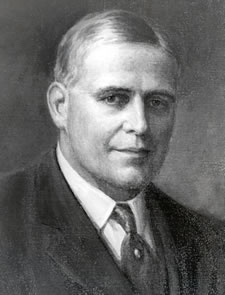
The Pennsylvania gubernatorial election of 1918 occurred on November 5, 1918. Incumbent Republican governor Martin Brumbaugh was not a candidate for re-election. Republican candidate William Sproul defeated Democratic candidate Eugene C. Bonniwell to become Governor of Pennsylvania.

The Pennsylvania gubernatorial election of 1922 occurred on November 7, 1922. Incumbent Republican governor William Sproul was not a candidate for re-election. Republican candidate Gifford Pinchot defeated Democratic candidate John A. McSparran to become Governor of Pennsylvania.
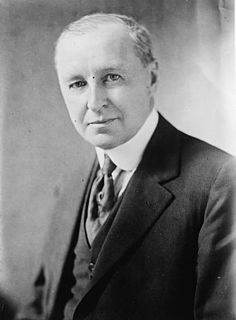
The Pennsylvania gubernatorial election of 1926 occurred on November 2, 1926. Incumbent Republican governor Gifford Pinchot was not a candidate for re-election. Republican candidate John Fisher defeated Democratic candidate Eugene C. Bonniwell to become Governor of Pennsylvania.

The Pennsylvania gubernatorial election of 1930 occurred on November 4, 1930. Incumbent Republican governor John Stuchell Fisher was not a candidate for re-election. Republican candidate and former governor Gifford Pinchot defeated Democratic candidate John M. Hemphill to win a second, non-consecutive term as Governor of Pennsylvania.

The Pennsylvania gubernatorial election of 1934 occurred on November 6, 1934. Incumbent Republican governor Gifford Pinchot was not a candidate for re-election. Democratic candidate George Howard Earle III defeated Republican candidate William A. Schnader to become Governor of Pennsylvania. This was the first Pennsylvania gubernatorial election won by the Democratic Party since 1890.
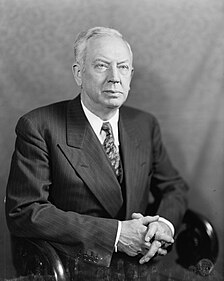
The Pennsylvania gubernatorial election of 1942 occurred on November 3, 1942. Incumbent Republican governor Arthur James was not a candidate for re-election. Republican candidate Edward Martin defeated Democratic candidate F. Clair Ross to become Governor of Pennsylvania.
















